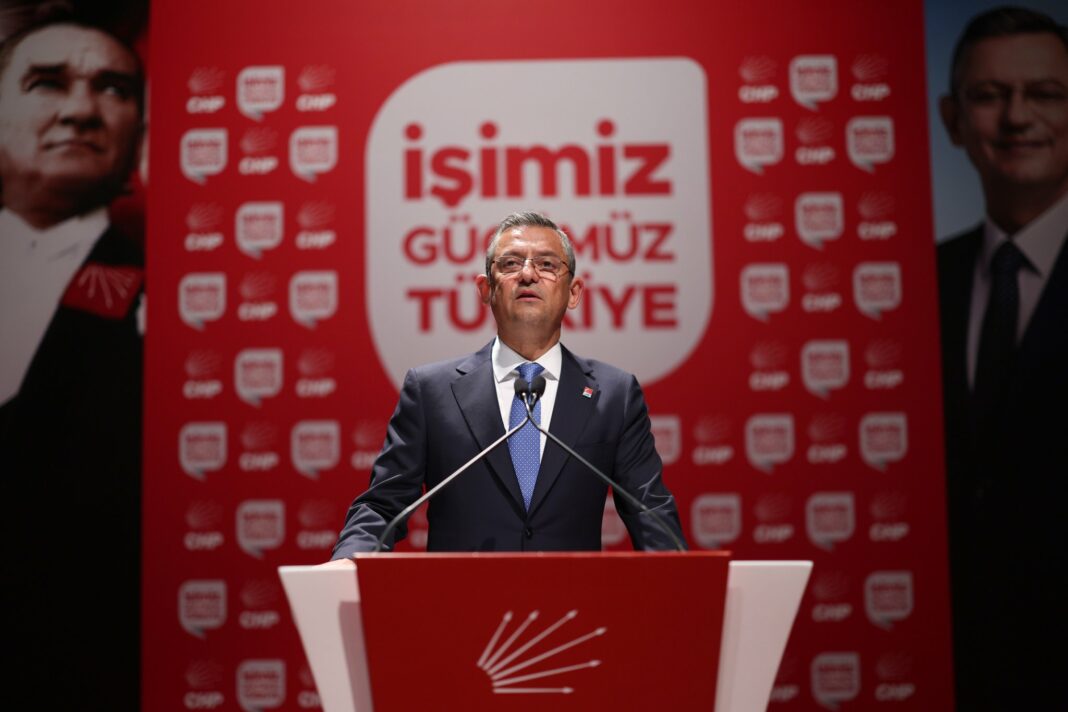The continued efforts of Özgür Özel, leader of Turkey’s main opposition Republican People’s Party (CHP), to promote political “normalization” with President Recep Tayyip Erdoğan’s ruling Justice and Development Party (AKP) have sparked criticism, with detractors accusing Özel of yielding to Erdoğan.
Özel, who replaced veteran CHP chair Kemal Kılıçdaroğlu last November, has met with Erdoğan four times since the March 31 local elections, a notable frequency given the long-standing rivalry between the CHP and the AKP. These meetings include two formal and two informal gatherings, reflecting a significant shift in the political dynamics.
While some have welcomed this “normalization” or “softening climate,” others have described it as a negative shift in Turkish politics.
Özel told Yavuz Donat of the pro-government Sabah newspaper that voters had faith in this new political phase. However, critics argue that Özel’s approach borders on subservience to Erdoğan, undermining the CHP’s role as the main opposition party.
During a visit to Rize, Erdoğan’s hometown, Özel emphasized the importance of being listened to by the electorate who previously ignored them. He expressed satisfaction with the feedback received, noting the newfound openness to dialogue from Erdoğan’s supporters.
However, this rapprochement has not prevented the government and opposition from clashing on various issues. Erdoğan recently targeted CHP-run municipalities over their debts to the Social Security Institution (SGK), accusing them of financial mismanagement. Özel responded by accusing the government of staging a “financial coup” against opposition municipalities, aiming to paralyze their operations and discredit them.
The financial pressure on municipalities comes after the CHP’s historic victory in the March local elections, where it emerged as the leading party for the first time in 47 years, relegating the AKP to second place. Erdoğan’s remarks have been interpreted as an attempt to hinder the opposition’s municipal services and retaliate for the AKP’s electoral defeat.
Labor Minister Vedat Işıkhan announced that all municipalities have been notified of their amounts outstanding and urged them to settle their debts, with 67.7 percent of the debt owed by CHP-run cities. Critics, including Ankara’s CHP mayor Mansur Yavaş, argue that the government’s move is an attempt to discredit the CHP-led municipalities and shift blame for financial mismanagement.
Yavaş criticized the government for failing to manage the country’s finances and accused it of targeting only CHP municipalities while ignoring similar debts accumulated under AKP mayors. He pointed out that municipalities inherited significant debts from their AKP predecessors, further complicating the financial landscape.
Despite the backlash, Özel remains committed to his normalization strategy. Critics have long accused the CHP of politicizing within the red lines set by Erdoğan and not putting up strong resistance that could challenge the president’s ruling AKP.



